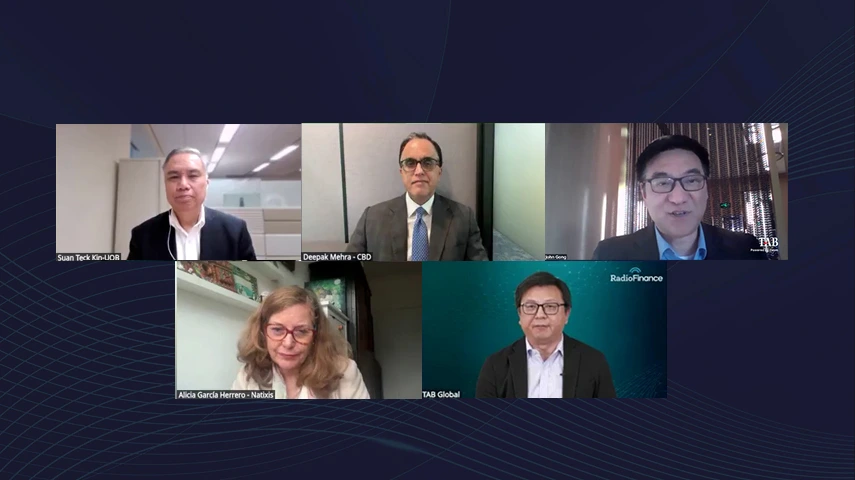Senior executives and heads of digital banks across Asia Pacific discussed how open banking frameworks and secured APIs can scale up financial services offerings. The dialogue also highlighted challenges and opportunities of utilising cloud-based solutions for connectivity, agility, and sustainability.
Phan Thanh Sơn, deputy CEO, head of global transaction services of Techcombank Việt Nam highlighted that the first priority for corporate banking is cash visibility by managing companies’ payables and receivables, reducing cash management operations, and managing supply chain transactions and data.
Kaiwan Turel, head of payment advisory, global payments solutions of HSBC Asia Pacific, mentioned that the key focus area for transforming corporate banking is utilising digital solutions to scale up operations to provide customer-centric products and innovate end-to-end customer experience.
Mark Willis, managing director and global head - API and open banking ecosystems of Standard Chartered stated that real-time treasury is shifting towards broader solutions that require optimised liquidity management. Moreover, leveraging APIs' real-time capabilities enhance user experience. Michael Christopher Cruz, vice president, usage and strategic businesses head of Rizal Commercial Banking Corporation (RCBC) said banks in the Philippines face challenges in digitising corporate and SME banking when dealing with businesses in rural areas that rely on cash. Hence, banks must adopt the right digital solutions for customer needs and offer greater personalised experience.
Frankie Wai, business solution director APAC of Temenos emphasised that ever-changing customer demands, evolving regulations, cyber security concerns, sanctions, fraud, and the impact of the pandemic have created an urgency for banks to digitise corporate banking and core systems.
Key discussion points:

Managing Director and Global Head - API and Open Banking Ecosystems,
Standard Chartered Bank

Deputy CEO – Head of Global Transaction Services,
Techcombank

Head of Payment Advisory,
Global Payments Solutions,
HSBC Asia Pacific

Vice President, Usage and Strategic Businesses Head, Rizal Commercial Banking Corporation (RCBC)

Business Solution Director APAC,
Temenos





The Asian Banker RadioFinance aims to enhance understanding of the finance industry globally by bringing together thought leaders, industry experts, practitioners and futurists to examine current, critical issues through a discussion facilitated by visual and web-based platforms. Through the use of interactive technology, participants do not have to take time out from their crowded schedules or leave the comfort of their own desks.

As wallets, instant payments and embedded finance reshape how customers interact with payments across Asia Pacific, card issuance is often assumed to be losing relevance. David Lim of Alliance Bank Malaysia, Anshul Sabherwal of Standard…

Customers in Malaysia increasingly expect international payments to be as seamless as local transfers. At a closed-door roundtable convened by TAB Global with Visa, participants examined how banks are adapting to these expectations while…

The Japan Banking Innovation Conference 2025, held at The Westin Tokyo, convened over a hundred senior banking executives, fintech leaders, policymakers and technology pioneers to discuss the fundamental shifts redefining financial services.

As the global banking industry braces for a challenging 2025, it faces economic headwinds, geopolitical tensions, trade realignments, and the push for sustainability and technological innovation

The AWS Financial Services Symposium Singapore 2024 showcased how AI, data, and cloud technologies are revolutionising financial services. Industry leaders from AWS and HSBC shared insights into advancing innovation, regulatory responsibility…

By continuing to browse this website, you agree to our privacy policy.